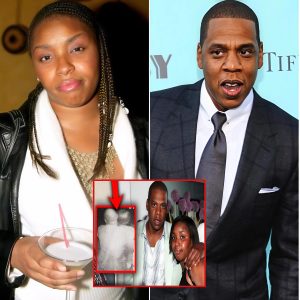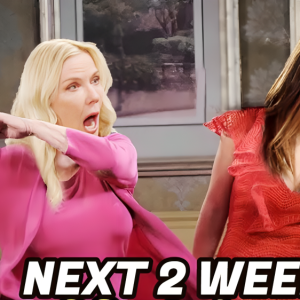Jaguar Wright’s Explosive Allegations Against Jay-Z: Power Dynamics in the Music Industry

Recent allegations by singer Jaguar Wright have ignited a heated conversation about the darker side of the music industry. Wright, known for her unfiltered commentary, has accused hip-hop mogul Jay-Z of behavior that raises serious ethical concerns. These allegations arrive amid ongoing legal battles involving Sean “P Diddy” Combs, who has been accused of manipulation and abuse. Wright’s claims suggest that Jay-Z’s actions may be even more troubling, shining a spotlight on power dynamics and exploitation within the entertainment world.
The Allegations Against Jay-Z

Jaguar Wright alleges that Jay-Z has engaged in inappropriate relationships with young artists, taking advantage of his position as one of the most influential figures in the music industry. While she did not provide specific details or names, Wright’s accusations point to a pattern of exploitation that she claims has been normalized in the industry. According to Wright, Jay-Z’s carefully curated public image as a business mogul and philanthropist conceals a more sinister reality.
These allegations come at a time when the music industry is under increased scrutiny for its handling of abuse and misconduct. Wright’s claims add to a growing list of controversies surrounding powerful figures in entertainment, forcing fans and industry insiders to reevaluate the power dynamics that often go unchecked.
Connections to Other Controversial Figures

Wright’s allegations also highlight Jay-Z’s associations with other controversial figures, including R Kelly and P Diddy. Both men have faced public and legal backlash for their alleged mistreatment of women and abuse of power. Wright suggests that these connections are not coincidental but indicative of a broader culture of exploitation in the industry.
For example, Jay-Z collaborated with R Kelly on the album The Best of Both Worlds in 2002, a project that was criticized for its timing, given the allegations against R Kelly at the time. While Jay-Z later distanced himself from Kelly, critics argue that his initial partnership with the disgraced singer raises questions about his judgment and priorities.
The Power Dynamics in the Music Industry
The allegations against Jay-Z underscore a recurring issue in the music industry: the exploitation of young and vulnerable artists by those in positions of power. Wright’s claims bring attention to how fame and influence can be weaponized, leaving victims with little recourse. This is not a new conversation, but the continued emergence of such allegations suggests that the industry still has significant progress to make.
Advocates for reform argue that greater accountability is needed to address these power imbalances. This includes implementing stronger protections for artists, fostering a culture of transparency, and holding influential figures accountable for their actions.
Jay-Z’s Managed Public Image
Jay-Z’s public image as a successful entrepreneur, family man, and philanthropist stands in stark contrast to Wright’s allegations. Over the years, he has cultivated a reputation as a progressive leader in the industry, using his platform to advocate for criminal justice reform and other social causes. However, Wright argues that this image is meticulously managed to deflect attention from his alleged misconduct.
Critics have pointed out that Jay-Z’s immense influence makes it difficult for allegations to gain traction. His control over media narratives and industry relationships creates a barrier for those who might come forward with accusations. This dynamic highlights the challenges of holding powerful figures accountable, especially in an industry where success often depends on staying in the good graces of influential players.
The Need for Accountability
Wright’s allegations against Jay-Z, whether substantiated or not, serve as a reminder of the urgent need for accountability in the music industry. As more individuals come forward with stories of abuse and exploitation, the industry must confront its systemic issues and take meaningful steps toward reform.
This includes providing safe spaces for victims to share their experiences without fear of retaliation, enforcing stricter guidelines for professional conduct, and dismantling the culture of silence that enables misconduct to thrive. Only through these efforts can the industry begin to rebuild trust and create a safer environment for all its members.
Conclusion
Jaguar Wright’s claims against Jay-Z have reignited discussions about power, exploitation, and accountability in the music industry. While the allegations remain unverified, they contribute to a broader narrative about the need for systemic change. As fans and industry professionals grapple with these revelations, the hope is that increased awareness will lead to meaningful action, ensuring that the industry’s future is defined by integrity rather than abuse of power.






